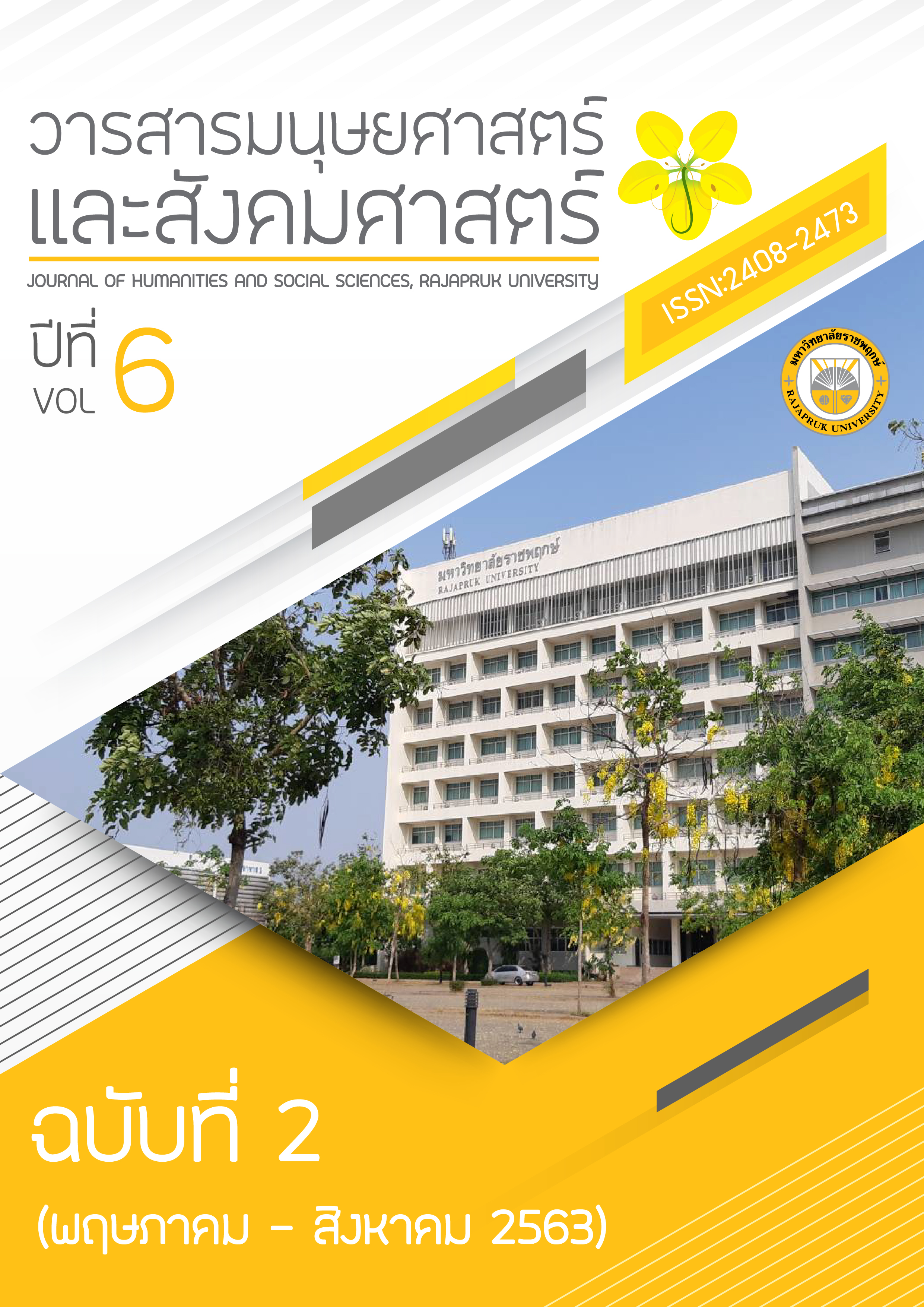Administrators’ Role in Leadership Development of Teachers Under the Phetchaburi Primary Educational Service Area Office 1
Main Article Content
Abstract
The purposes of this research were to: 1) examine administrators’ role in leadership development of teachers under the Phetchaburi Primary Educational Service Area Office 1 as perceived by teachers, and 2) make a comparison of teachers’ perception towards administrators’ role in teachers’ leadership development as classified by school size. The study sample were 201 primary school teachers under the Phetchaburi Primary Educational Service Area Office 1. The instrument used for collecting the data was a questionnaire on administrators’ role in teachers’ leadership development. The statistics used for analyzing the collected data included mean, standard deviation and One-Way ANOVA.
The research findings revealed that, as perceived by primary school teachers under the Phetchaburi Primary Educational Service Area Office 1, the administrators’ role in teachers’ leadership development was practiced at high level. The listed mean scores in order included encouraging teachers to be transformational leaders, enhancing teachers’ teaching and learning competencies, promoting team work and participation in school administration. Furthermore, it was also found that, as classified by school size, the teachers’ perception towards the school administrators’ teacher leadership development was not different.
Article Details
References
ประไพศรี ลีฬหะกร. (2558). ภาวะผู้นำครูในโรงเรียนมัธยมศึกษา สังกัดสำนักงานเขตคณะกรรมการการศึกษาขั้นพื้นฐานในภาคใต้ตอนบน. วารสารศึกษาศาสตร์มหาวิทยาลัยทักษิณ. 15(1) มกราคม - มิถุนายน 2558.
มติชนสุดสัปดาห์. (2561). การศึกษา/ศธ. เคาะเกณฑ์ใหม่ ย้าย ‘ผอ-รอง ผอ’ แก้ปมโรงเรียนร้าง ผู้บริหารกว่า 7 พันคน. ค้นเมื่อวันที่ 14 เมษายน 2561, จาก www.matichonweekly.com.
วาสนา ปุริโส และคณะ. (2559). การพัฒนาภาวะผู้นำครูในโรงเรียนน้ำตกห้วยสวนพลู: การวิจัยปฏิบัติการแบบมีส่วนร่วม. วารสารวิจัยบัณฑิตศึกษา มหาวิทยาลัยขอนแก่น. 10 (4), 119-125.
สุเทพ พงศ์ศรีวัฒน์. (2558). ผู้นำสถานศึกษากับการสร้างโรงเรียนแห่งการเรียนรู้. กรุงเทพฯ: บริษัทเอ็กซเปอร์เน็ต จำกัด.
สุรีรัตน์ รัตนเธียร. (2552). ตัวแบบความสามารถทางภาวะผู้นำครูในสถานศึกษาขั้นพื้นฐาน. วิทยานิพนธ์ศึกษาศาสตรดุษฎีบัณฑิต บริหารการศึกษา มหาวิทยาลัยเกษตรศาสตร์.
อาภารัตน์ ราชพัฒน์. (2554). การพัฒนาตัวบ่งชี้ภาวะผู้นำของครูในสถานศึกษาขั้นพื้นฐาน. วิทยานิพนธ์ปริญญาปรัชญาดุษฎีบัณฑิต บริหารการศึกษา บัณฑิตวิทยาลัย มหาวิทยาลัยขอนแก่น.
Abranson, M. A. (2012). In Search of the New Leadership. Leadership Inc, 9 (3): 1-4.
Bernard, M.B. (2006). Transformational Leadership. Mahwah, New York: L.Erlbaum.
Crowther, F., Kaagan, S. S., Ferguson, M., & Hann, L. (2002). Developing Teacher Leaders: How Teacher Leadership Enhances School Success. Thousand Oaks, California: Corwin Press, Inc.
Donaldson, G. A. (2006). Cultivating Leadership in Schools: Connecting People, Purpose and Practice. New York: Teachers College Press.
Leithwood, K., Jantzi, D., & Steinbach, R. (1999). Changing Leadership for Changing Times. Buckingham, England: Open University Press.
Lieberman, A., and Miller, L. (2005). Teachers as Leaders Essays. The Educational Forum. 2 (69), 151-162.
Senge, P. (2000). Schools That Learn. New York: Doubleday/Currency.
Steven J. Sanocki. (2013). The Process of How Teachers Become Teacher Leaders and How Teacher Leadership Becomes Distributed Within a School: A Grounded Theory Research Study. Dissertation Educational Leadership, Research and Technology. Western Michigan University.
York-Barr, J. & K. Duke. (2004). What Do We Know About Teacher Leadership. SAGE Journals. Retrieved on 14th March, 2005, from: Journals.sagepub.com.


